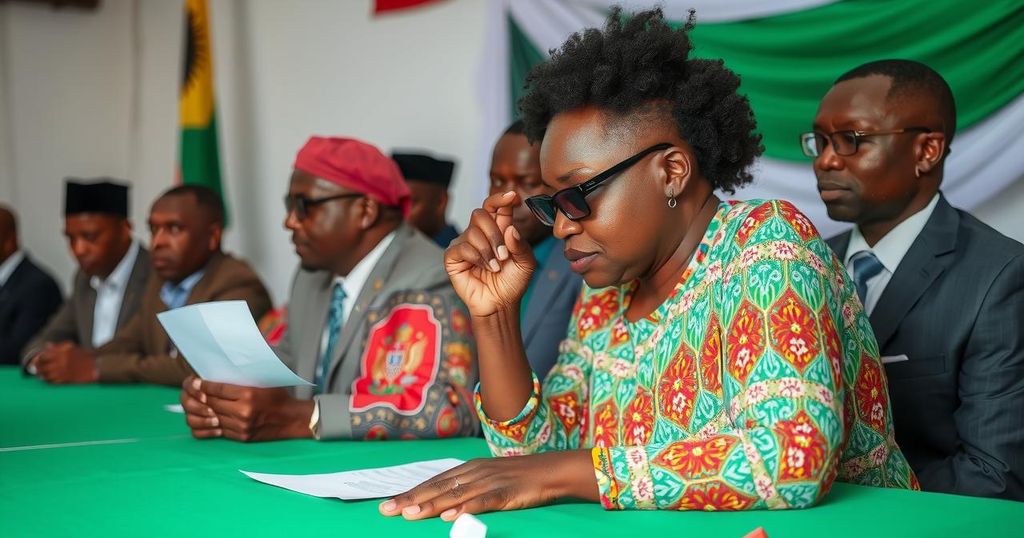Comoros Parliamentary Election Witnesses Opposition Boycott Amid Claims of Authoritarianism

Comoros held a parliamentary election with a boycott from several opposition parties, citing concerns over political repression and the integrity of the voting process. Approximately 330,000 voters were registered, but low turnout is expected due to discontent with the electoral system. President Azali Assoumani, facing allegations of fraud, continues to navigate a tumultuous political landscape marked by opposition frustrations and historical instability.
On Sunday, Comoros conducted a parliamentary election marked by a boycott from several opposition parties. These leaders accused President Azali Assoumani and his ruling party of exhibiting authoritarian behavior and undermining the vote’s credibility. This election determines the composition of the 33-seat legislature, with results anticipated next week.
The national electoral commission reported that roughly 330,000 citizens are registered to vote in an archipelago with a total population of 850,000. Opposition figures predict a low voter turnout, attributing it to widespread disillusionment with the democratic process. In the preceding parliamentary election of 2020, Assoumani’s Convention for the Renewal of the Comoros secured 20 of the 24 contested seats, which the opposition denounced as illegitimate.
President Assoumani, who cast his vote in his hometown of Mitsoudjé, has faced allegations of electoral fraud, particularly following his controversial re-election last year, which provoked significant protests. The Juwa Party, led by former President Ahmed Abdallah Sambi, was among the parties boycotting this election, similar to their stance in 2020.
Comoros consists of three Indian Ocean islands, situated off the east coast of Africa, and has experienced multiple military coups since gaining independence from France in 1975. Assoumani initially took power in 1999 through a coup and has since returned to the presidency after a hiatus, winning elections amidst controversies regarding their legitimacy. Constitutional changes implemented in 2018 have further enabled him to bypass prior term limits, facilitating his continued governance despite accusations of increasing political oppression and diminished electoral competition.
Notably, the electoral process proceeded despite the threats posed by Tropical Cyclone Dikeledi, which was forecasted to approach Comoros around the time of voting.
The parliamentary election in Comoros occurs within a context of political tension, marked by historical irregularities in electoral processes and military coups. Since their independence in 1975, the nation has been grappling with governance issues, most notably under President Azali Assoumani, whose tenure began as a military coup leader. Comoros’s democratic framework is challenged by claims of electoral fraud and political repression, leading to opposition boycotts and declining public trust in the electoral system.
The recent parliamentary election in Comoros highlights significant political strife, with opposition parties alleging authoritarian practices under President Azali Assoumani. The reluctance of these parties to participate underscores the prevailing sentiment of disenchantment with the electoral process, reflective of broader issues surrounding governance and democracy within the archipelago. The situation warrants close observation, particularly regarding the future of democratic practices in Comoros.
Original Source: www.seattletimes.com






